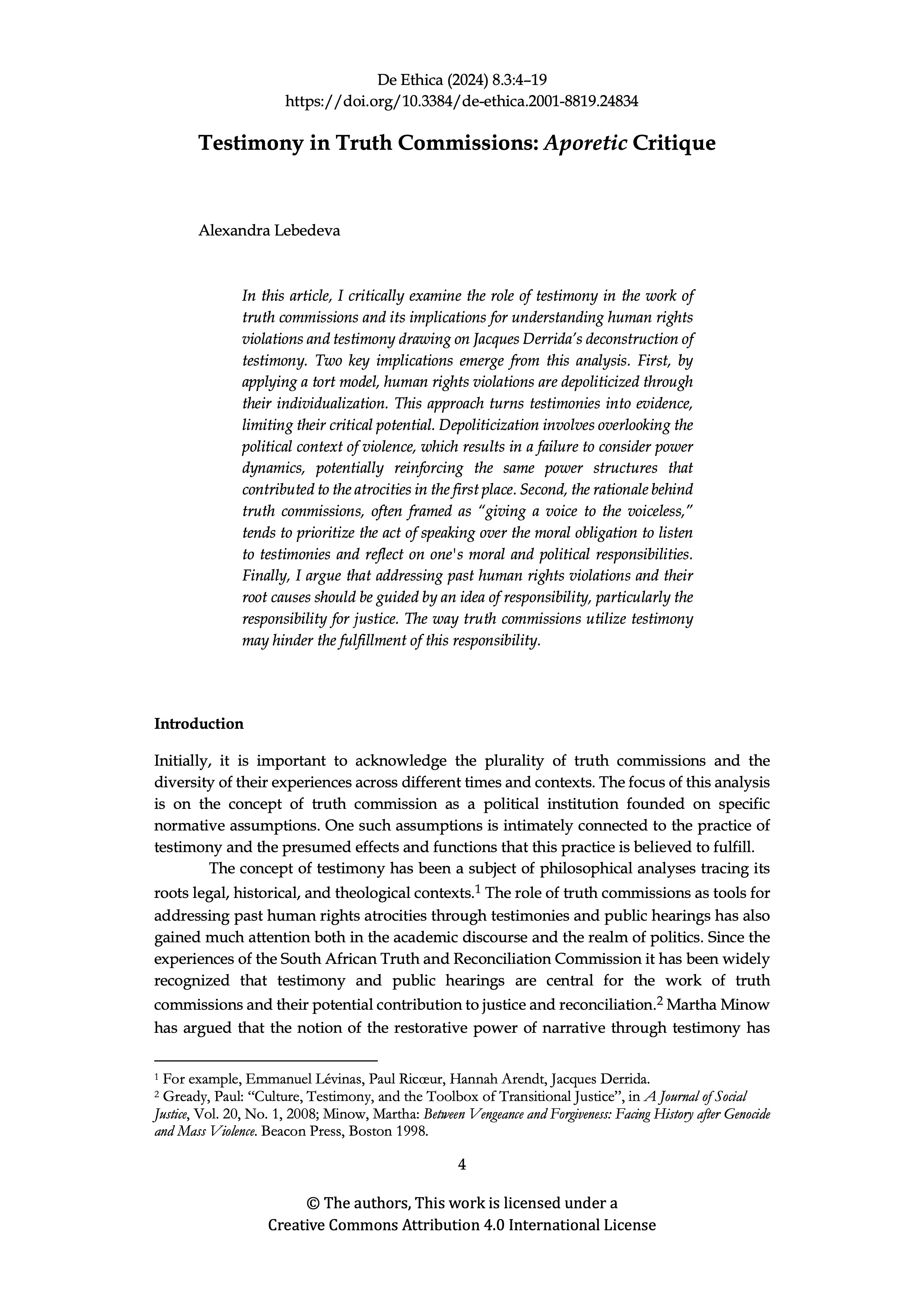Testimony in Truth Commissions
Aporetic Critique
DOI:
https://doi.org/10.3384/de-ethica.2001-8819.24834Keywords:
Derrida, depoliticization, justice, reconciliation, responsibility, testimony, truth commissionAbstract
In this article, I critically examine the role of testimony in the work of truth commissions and its implications for understanding human rights violations and testimony drawing on Jacques Derrida’s deconstruction of testimony. Two key implications emerge from this analysis. First, by applying a tort model, human rights violations are depoliticized through their individualization. This approach turns testimonies into evidence, limiting their critical potential. Depoliticization involves overlooking the political context of violence, which results in a failure to consider power dynamics, potentially reinforcing the same power structures that contributed to the atrocities in the first place. Second, the rationale behind truth commissions, often framed as "giving a voice to the voiceless", tends to prioritize the act of speaking over the moral obligation to listen to testimonies and reflect on one's moral and political responsibilities. Finally, I argue that addressing past human rights violations and their root causes should be guided by an idea of responsibility, particularly the responsibility for justice. The way truth commissions utilize testimony may hinder the fulfillment of this responsibility.

Downloads
Published
How to Cite
Issue
Section
License
Copyright (c) 2024 Alexandra Lebedeva

This work is licensed under a Creative Commons Attribution 4.0 International License.
